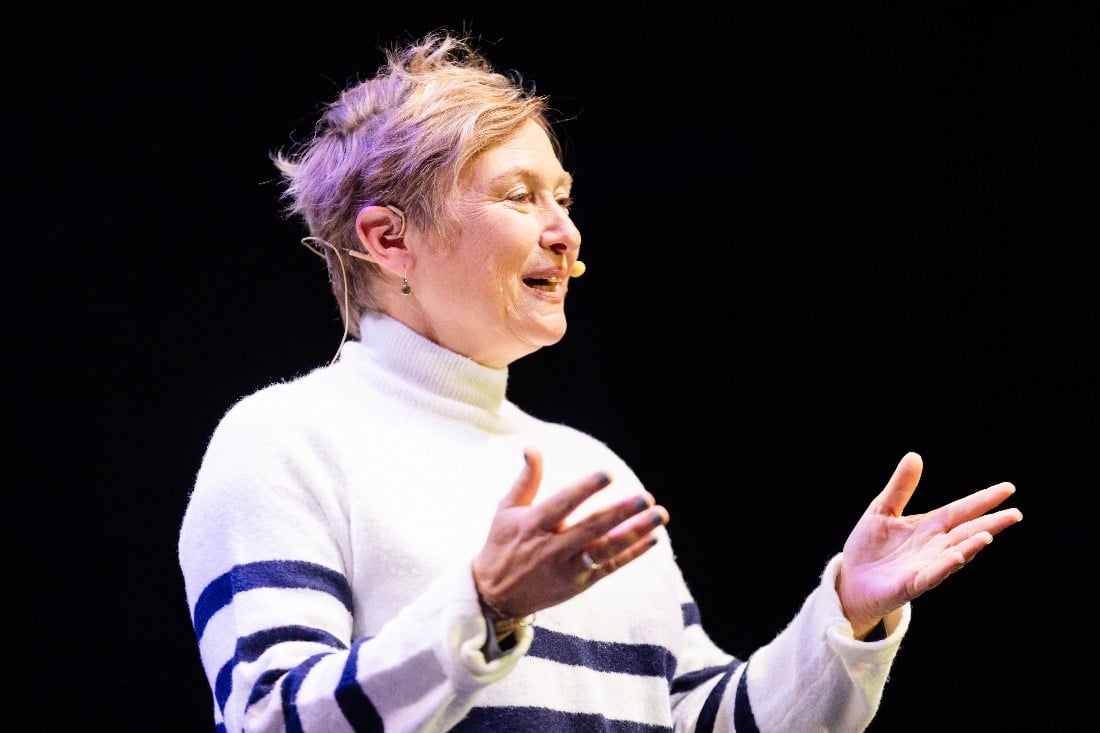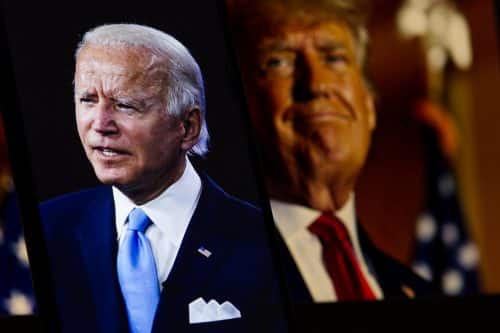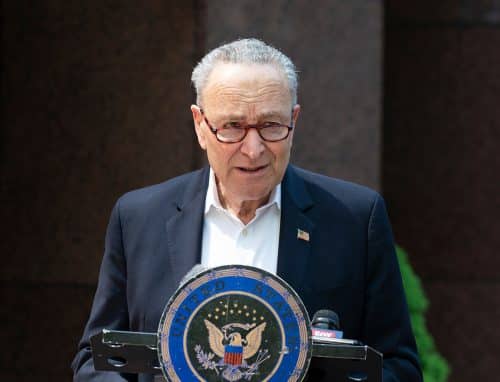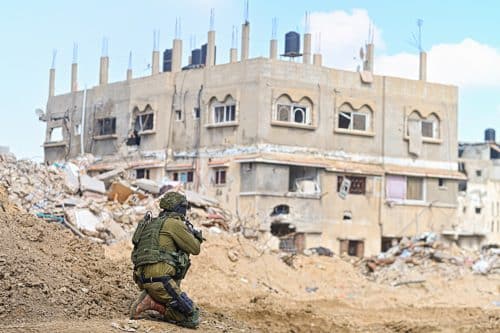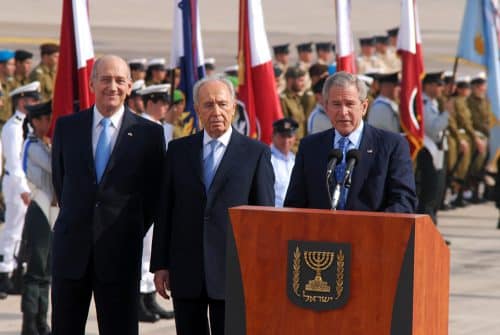Anyone scanning the arrivals at the second Israel Defense Conference would notice that the crowd had changed its appearance strikingly since the previous conference, only seven months before. Uniforms stood out this time, carrying dust straight from the Iron Swords war. Such is Israel’s security situation, ever since October 7, 2023.
The Israel Defense Conference was held last Thursday (January 25, 2024) in Ashkelon, at the initiative of the Israel Defense and Security Forum (IDSF) and in cooperation with the Jerusalem Center for Public Affairs (JCPA), and it was broadcast live through the Ynet website.
Among the participants were senior figures from politics and the security services, soldiers on active duty, media figures, global experts, heads of governmental authorities and districts, and representatives of the hostages’ families and of the footsoldiers. Prime Minister Benjamin Netanyahu participated in the conference remotely and made clear that there is no substitute for total victory. In his speech, he also said to the IDSF movement: “Your support is an important factor for achieving our national goals.”
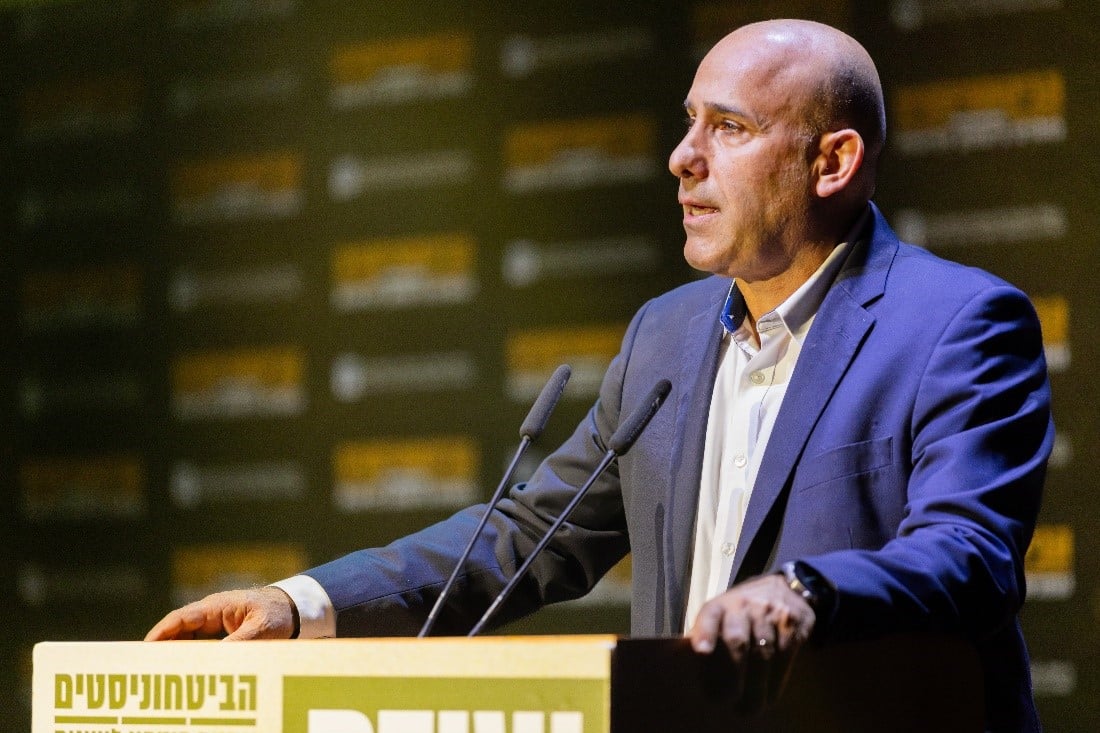
No finish line: A clear-headed look at the war and at Israel’s security situation
As the conference began, the attendees were asked to stand for a minute of silence in memory of the tens of thousands who were murdered or fell in action at the events of October 7 and in the war of “Iron Swords.” This followed a telling of the personal story of Tzika Lavi of blessed memory, which was no less than the story of all Israel’s determination. Afterward, Brig. Gen. (Res.) Amir Avivi, founder and Chairman of the IDSF movement, related that as long as two years ago, senior personnel from the movement had warned political and security figures of the approach of a war against the State of Israel and had presented them with a strategic situational assessment substantiating that warning. “We understood that we had two alternatives, a Six Day War or a Yom Kippur War,” said Avivi. “We told the Israeli government that the country needs to call a halt to everything, unite, and prepare the IDF. To my regret, on October 7 we found ourselves in the very situation that we’d been so afraid of.” Avivi emphasized that although Israel did fall victim to a horrible surprise attack, he is optimistic that from out of the crisis, the country can grow. “Now we all understand the reality we’re living in, and we see that we need to ensure Israel’s security for generations to come,” he said, and he noted that “the decisions of the coming year will affect the next hundred years.” Avivi concluded his speech with a clear declaration: “I can tell you, one hundred percent, we will win and we will vanquish our enemies, and after that victory, the nation of Israel may expect a new golden age.”
Maj. Gen. (Res.) Gershon Hacohen, a co-founder of the IDSF movement, also spoke. He contended that the discussion of “the day after” represented a European–American belief that wars can come to an end. “We are facing a world of Islam that thinks differently,” he explained. “Hamas wants to impose a chronic state of war on Israel. Our war has no finish line.” Hacohen also commented on the idea of establishing a Palestinian state under a revitalized Palestinian Authority. “Most of the public doesn’t understand about it,” he said. “The Palestinian state that’s bruited by the Biden administration — and, to my sorrow, by some Israelis — is a disaster.” Since the signing of the Oslo Accords early in the 1990s, the State of Israel, according to Hacohen, has been on the retreat, and now we must fight for the little that remains in our hands.
Rejecting Qatar and UNRWA: An interview with Finance Minister Bezalel Smotrich
The opening speeches were followed by an interview with Finance Minister Bezalel Smotrich conducted by journalist Ofer Hadad of Channel 12 News. In the interview, Smotrich contended that continuing the war does not damage the efforts to free the hostages. On the contrary, according to him, only by toppling the rule of Hamas can we successfully maximize the chances of the hostages’ return.
Smotrich also dwelt on Qatar’s involvement in the war. He claims that Qatar has an interest in preserving Hamas and that it thus does all it can to impede Israel’s attempts to bring the hostages home. “My position is that it’s wrong to involve Qatar at all. Even as a go-between,” he said. “Qatar is the most obstructive player. It prevents the hostages from being returned and the war from being ended.” The Finance Minister also stressed that the hostages serve not only as an insurance policy for the personal survival of Sinwar and for the survival of the Hamas organization but also as an insurance policy for the destruction of Israel. “Sinwar wants to eliminate the State of Israel, and he understands that the best way to do it is by cracking Israeli society apart,” Smotrich asserted. “Our task as a nation is to prove to Sinwar and Nasrallah that Israeli society is united.”
The Finance Minister also spoke of the humanitarian aid being passed into the Gaza Strip. In his opinion, that aid is necessary but mismanagement of aid is harming Israel’s ability to achieve its war objectives. “It’s unacceptable that this aid is handled by UNRWA because UNRWA is the same as Hamas,” he explained. “The aid should be delivered at the proper places and in the proper way.” Smotrich concluded his speech by noting that engaging in politics at this juncture is disastrous because the focus today must be on one thing only: victory. “We stand at one of the most critical moments in Jewish history,” he said. “Entire generations depend on the decisions that are now to be made.”
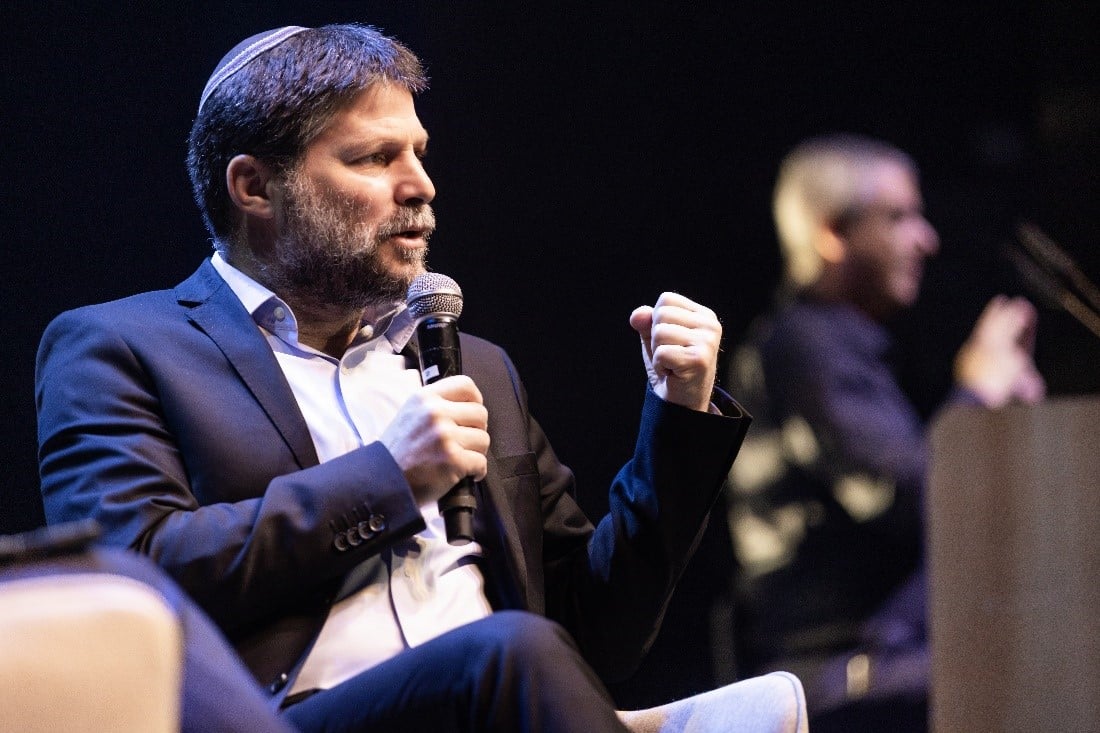
Our enemies are watching: The ramifications of the fighting in Gaza, and the handling of the northern front
The Defense Conference included five panel discussions. The first, “From crisis to victory,” dealt with a weighty issue: How can terrorism be overpowered?
“Before we can answer the question of how to defeat terrorism, we need to examine how not to defeat terrorism,” said Maj. Gen. (Res.) Yiftah Ron-Tal, former head of the Ground Forces Command. He considers that the pullbacks the State of Israel chose to execute — in disengaging from Gaza, and in halting the Second Lebanon War — are what enabled the terrorist organizations around us to gather size and strength. “When a people’s ideology favors destroying Israel, and they have the capacity to do so, they will use it.” According to Ron-Tal, the goals of the current war are justified and clear, and they include defeating Hamas, returning the hostages, and restoring the security of the Israelis at the Gaza periphery by revamping Gaza.
Brig. Gen. (Res.) Oren Solomon, formerly a senior official in the Prime Minister’s Office, added that we are poised at a critical point in the fighting. “Our enemies are watching,” he said, and he emphasized: “We mustn’t show them that hostile terrorist action leads the State of Israel to retreat or show weakness.”
The panelists also discussed the increasingly violent northern front. “Hezbollah is not standing alone, it’s an appendage of Iran,” explained Lt. Col. (Res.) Yaron Buskila, Secretary General of the IDSF movement. “I hope that in the next phase, it will be Israel taking the initiative and mounting surprises in the north. We mustn’t let Hezbollah surprise us, because it has much more significant capabilities than Hamas has.”
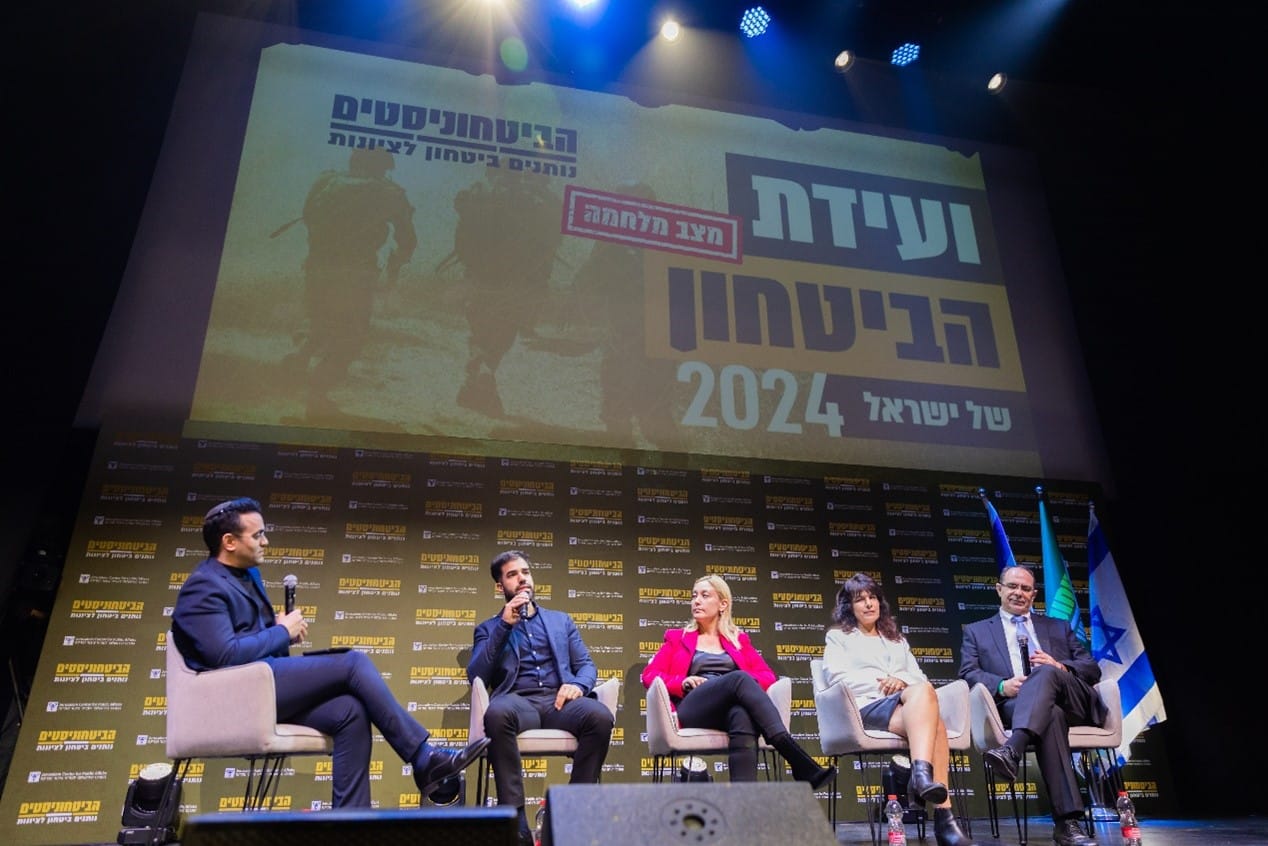
Marching together: The common battle over the identity of the Middle East
The second panel discussion was named “The Generation After,” and it focused on the future of the Gaza Strip. According to former Knesset Member Ruth Wasserman Lande, it is important to deal with massive institutionalized incitement. “Along with the military aspect, Israel has an interest in engineering an environment in which the entire system of conveying messages is changed completely throughout the Gaza Strip. It’s already been done in the United Arab Emirates, and it’s possible.”
Adv. Nitsana Darshan-Leitner, director of the Israel Law Center (Shurat HaDin), addressed the matter of the Gaza Strip’s finances. “Each terror organization that’s destroyed continues existing as an idea,” she stressed. “If we don’t block the financial pipeline of Hamas, we’ll find ourselves living with it again. The State of Israel is clever and creative enough to fight the terror organizations’ sources of funding.”
The third panel at the Defense Conference discussed the multi-front war against the Iranian axis, and its participants provided an overview of the battlegrounds and of the roles of Iran, China, and Russia in the conflict. “Iran is trying to shape the Middle Eastern reality and change the global map,” declared Brig. Gen. (Res.) Yossi Kuperwasser, head of the research department at the IDSF movement. “We need to march together into the conflict over the identity of the Middle East. If we hesitate where vanquishing Hamas is concerned, and we call it impossible, the challenge we face will be multiplied many times over.”
Lt. Col. (Res.) Michael Segal, a senior researcher at JPCA, added that the State of Israel must wage a war of counterpropaganda among the Iranian population in order to arouse resistance against the regime. “The Iranian money that pours into the terror organizations could be helping the people of Iran,” he explained, “and Israel should raise such issues with the Iranians themselves.”
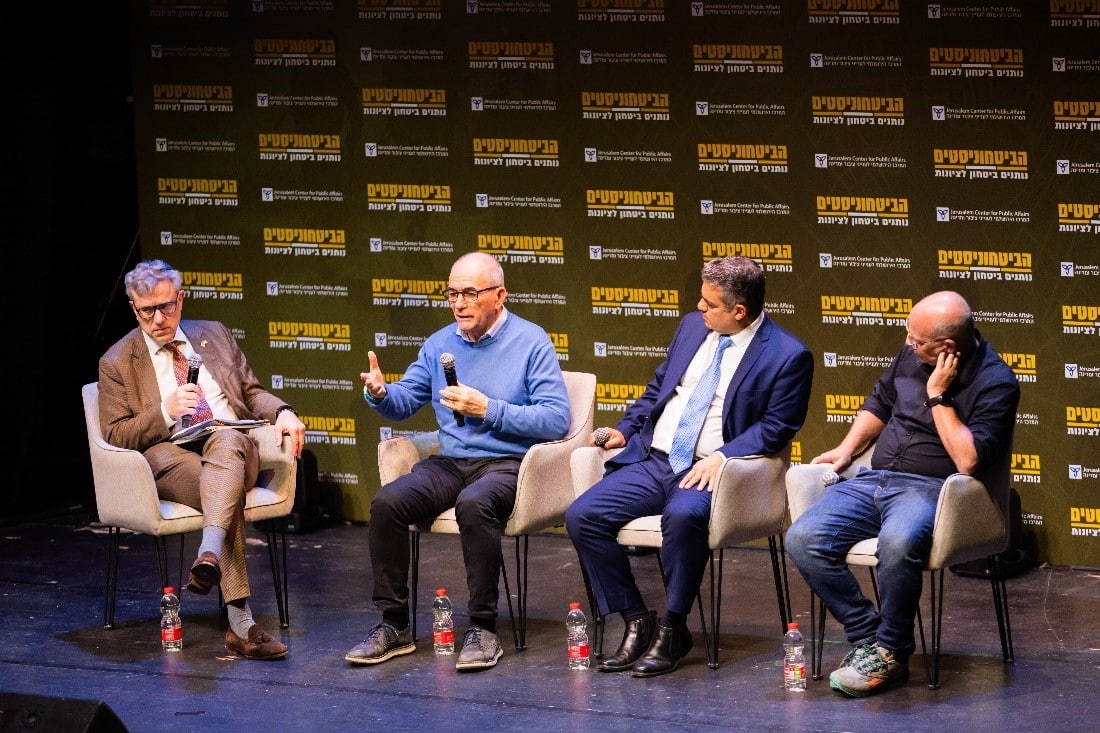
No flock of sheep: The perspective of the war zones’ residents
In addition, the Defense Conference devoted a place of honor to the heads of the local councils from the southern and northern war zones. At the fourth panel, three council heads participated from the zone near Gaza, along with the mayor of Kiryat Shmona. The four of them described the difficulties that the evacuated residents confront, and they discussed what conditions would allow for a safe return home.
Despite the many challenges facing residents who have been uprooted from their daily lives, all four leaders agreed that those residents will not be returning home before true security is attained and the communities possess the required defenses. “We aren’t some flock of sheep that can be led out and back,” said Avichai Stern, the mayor of Kiryat Shmona. “We’re prepared to show patience, but we’re not returning just to be evacuated again after a couple of years. We won’t be made ridiculous.”
“If we don’t persist in this war and defeat Hamas, that means the State of Israel is kneeling down to monsters,” asserted Sderot’s Mayor Alon Davidi. “For this war, what demonstrates victory is simply a vanquished Hamas.” Tomar Glam, the mayor of Ashkelon, agreed: “We need to topple Hamas for real, not by sloganeering. If we don’t put paid to the terrorists, they’ll put paid to us.”
The fifth and last panel dealt with the importance of national resilience. The panel featured varied speakers from all sectors of society and included Tzvi Mor, the father of abductee Eitan Mor; Yael Shavit of Makor Rishon; and Ishay Green, a hi-tech entrepreneur and left-wing figure. Despite the differing stances presented by the panel, all the participants agreed on striving for unity among the nation.
“If we’re fit to die together, we’re fit to live together,” contended Aviv Haim Ezra, an active reservist and founder of the Tkuma movement, and he added: “Solidarity and unity are the way, endgame and victory are the objective. Our nation’s duty is to win. It’s the most seemly thing we can do for those who fell in action or were murdered.”
Vardit Kruger, of the Mothers of IDF Soldiers organization, added that the public discourse needs to address questions of historical identity. “We can’t proceed to victory if we don’t understand and remember who we are and why we’re here,” she said. “Those are the most fundamental questions, and we must answer them.”
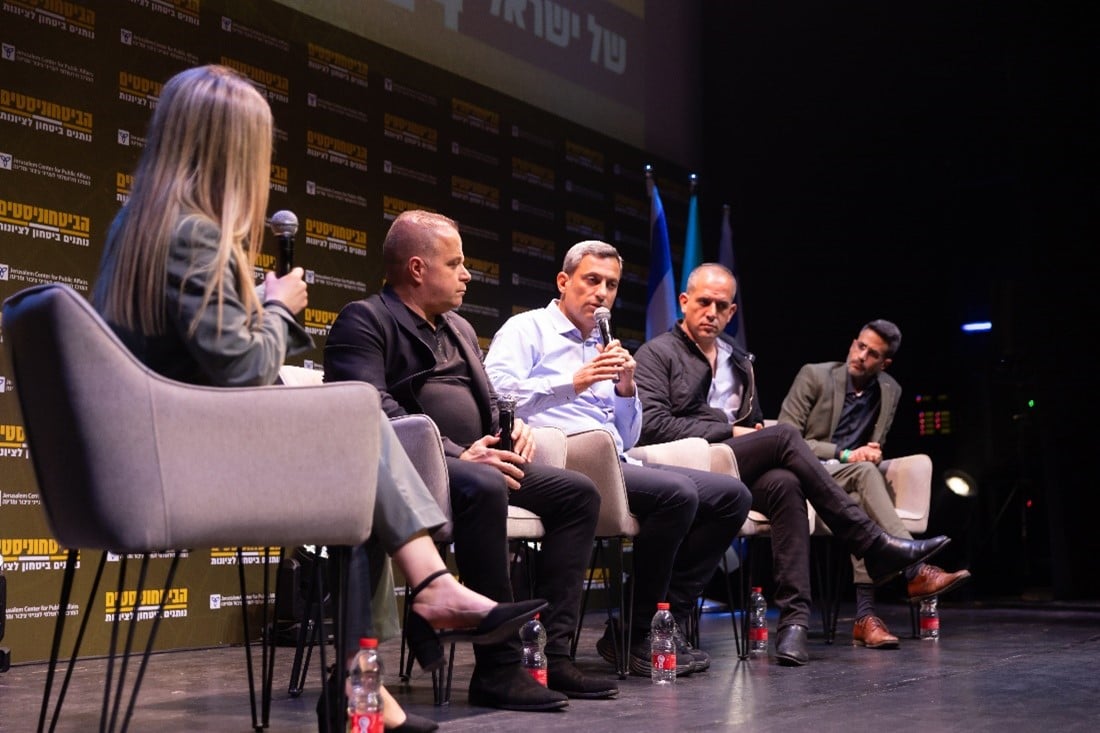
Until victory: It’s for us to continue, for the sake of the fallen
Between the various panel discussions, other speakers took the rostrum. Lt. Col. (Res.) Shosh Raban, formerly head of the ground forces organization branch, emphasized that the multi-front scenario is not apocalyptic but true to life, and that the army must prepare itself accordingly. She raised the possibility of boosting the retirement age back up for reservists, restoring the full three years of compulsory military service, and properly recruiting the haredi sector into the army. She also took note of the sterling work that women were contributing on all the fronts. “In terms of security, Zionism, spirit, vision — there’s really no difference between men and women,” she said. “I’m a great believer in the power and abilities of women.”
Iris Haim, the mother of abductee Yotam Haim of blessed memory, took part in the conference, and everyone in the hall was moved. “My heart is not held captive in Gaza,” she explained. “Hamas kidnapped my son, and I’m not prepared to let it kidnap my heart.” Subsequently, she related that she had trouble with the term “fallen.” “Soldiers don’t fall down,” she said, “they raise us all up.” Lt. Col. (Res.) Maoz Schwartz, who is currently on the battlefield, asked to put a similar message across: “Those who perish are paving the way for us,” he stressed, and he added: “We are their disciples, and our job is to carry on until victory.”
At the end of the conference, the audience was asked to stand once again, this time not for a minute of silence but for the singing of “Hatikva.” Amid a special atmosphere that had filled the room by the time the series of speeches ended, it seemed that the familiar words of Naftali Herz Imber acquired an extra measure of relevance: Our hope is not yet gone.
